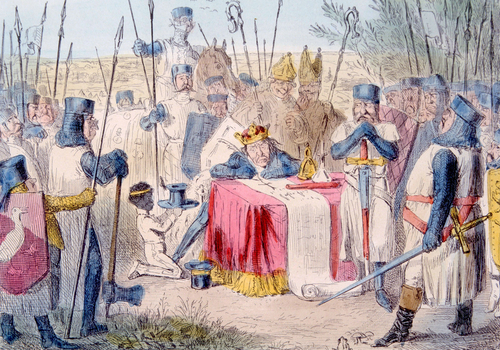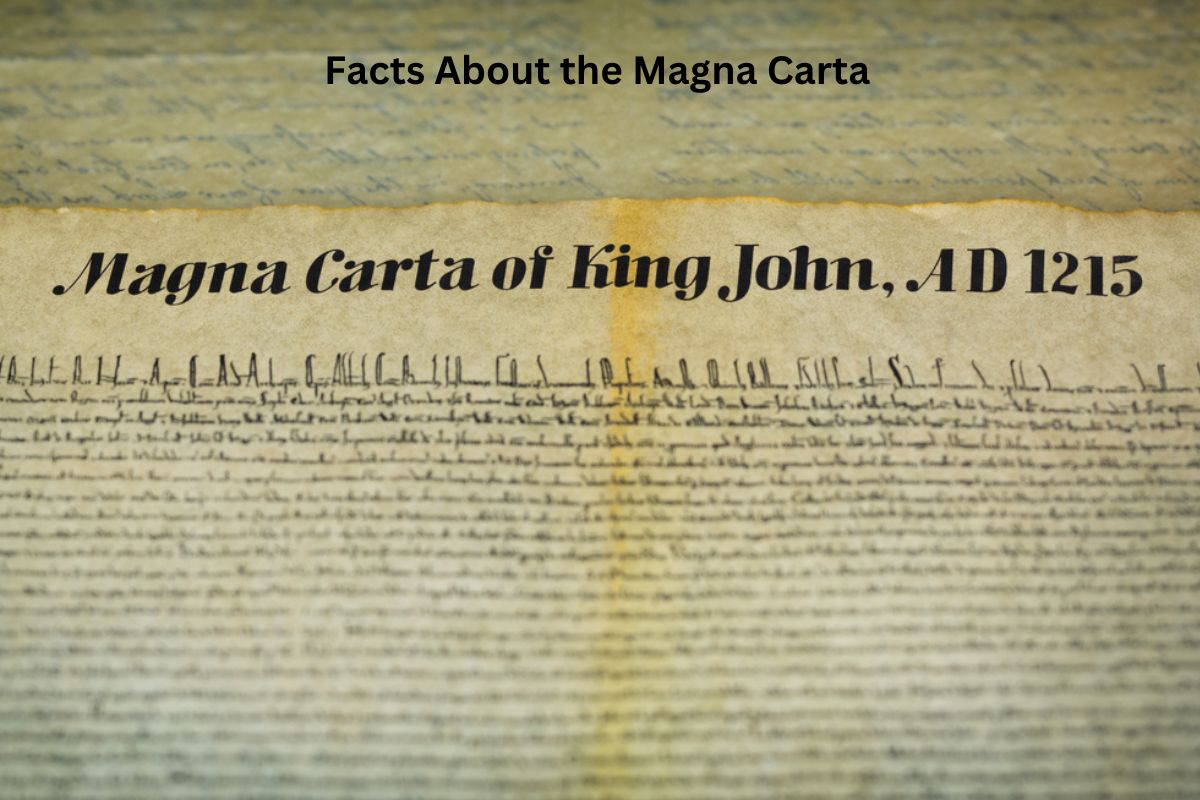The Magna Carta, or “Great Charter,” is a historic document that emerged in 1215 during the reign of King John in England.
This groundbreaking charter represented a pivotal moment in history, as it aimed to limit the king’s power, protect individual rights, and establish foundational principles of governance that would resonate across centuries and continents.
In the following sections, we will delve deeper into the key aspects and significance of the Magna Carta, exploring its enduring influence on the development of modern legal and political systems.
Magna Carta Facts
1. Signed in 1215 in England
The Magna Carta, which translates to “Great Charter” in Latin, was signed in 1215 in England, specifically at Runnymede, a meadow by the River Thames. It was a historic event that took place during the reign of King John of England.

2. Limited the power of the king
One of the primary purposes of the Magna Carta was to limit the power of the king. King John’s rule was marked by tyranny, heavy taxation, and arbitrary acts.
Also Read: Facts About King John
The barons and nobles of the realm were dissatisfied with his leadership and sought to curtail his authority. The Magna Carta achieved this by establishing that the king was not above the law.
It asserted that the monarch had to govern according to established customs and laws, effectively making the king accountable for his actions.
3. Protected individual rights and fair trials
The Magna Carta is notable for its emphasis on individual rights and the guarantee of fair trials. It introduced the concept of due process of law, ensuring that individuals could not be deprived of their life, liberty, or property without a fair and just legal proceeding.
Also Read: Timeline of the Magna Carta
This concept laid the foundation for modern notions of justice and the rule of law.
It also protected against arbitrary imprisonment and established the right to a trial by one’s peers. These principles were instrumental in shaping the development of legal systems and the protection of human rights in later centuries.
4. Required baronial consent for taxes
The Magna Carta played a pivotal role in establishing the principle of “no taxation without representation.” It asserted that the king could not impose taxes or levies on his subjects without the consent of the barons and nobles.
This was a significant step in limiting the king’s power to extract wealth from the realm without the agreement of those who would bear the financial burden.
The idea that taxation should be based on the consent of elected representatives would later become a foundational concept in democratic governance.
5. Introduced the concept of due process
The Magna Carta introduced the concept of due process of law, which means that individuals cannot be deprived of life, liberty, or property without a fair and just legal process.
This principle ensured that accused individuals had the right to a trial before their peers, where evidence could be presented and judgment rendered according to established legal procedures.
Due process was a significant departure from arbitrary and capricious forms of punishment and justice that were common during that time.

6. Addressed property inheritance and widows’ rights
The Magna Carta included provisions related to property inheritance and the rights of widows. It aimed to prevent the king and powerful nobles from seizing the estates and property of deceased landholders.
Additionally, it protected the rights of widows by ensuring that they could not be forced into marriage against their will, a provision that safeguarded their property and personal autonomy.
These clauses were essential for protecting the interests of families and individuals in matters of inheritance and marriage.
7. Included clauses on religious freedom
While the Magna Carta is primarily known for its provisions related to political and legal matters, it also contained clauses addressing religious freedom and the rights of the Church.
These clauses protected the autonomy and privileges of the Church from royal interference. They asserted that the Church should be free to elect its own leaders without royal interference and that the Church’s properties and rights should be respected.
This was an early step in the development of the separation of church and state, a principle that would become a cornerstone of modern governance.
8. Had multiple reissues and revisions
The Magna Carta was not a one-time document but underwent several reissues and revisions during the medieval period. The most famous version is the 1215 edition, but it was reissued in 1216, 1217, and 1225.
Each reissue reflected the evolving political and legal landscape of the time, with modifications and amendments made to address specific concerns and circumstances.
The 1225 version, also known as the “final” Magna Carta, became the basis for subsequent legal developments.
9. Influenced later constitutional documents
The Magna Carta’s significance extends beyond its historical context. It served as a foundational document that influenced later constitutional and legal developments, both in England and around the world.
Many of its principles, such as limited government, protection of individual rights, due process of law, and the idea of representative governance, were embraced and expanded upon in subsequent legal and constitutional documents.
Notably, it had a profound influence on the drafting of the United States Constitution, with several of its ideas and concepts finding their way into the Bill of Rights and the structure of American government.
10. An essential foundation for modern human rights and governance
The Magna Carta’s enduring legacy lies in its contribution to the development of modern human rights and governance. It laid the groundwork for concepts such as the rule of law, constitutionalism, and the protection of individual liberties.
It exemplifies the idea that even monarchs and rulers are subject to legal constraints and that the rights and freedoms of individuals should be safeguarded by law.
The Magna Carta, therefore, remains a symbol of the ongoing struggle for justice, liberty, and accountable government in democratic societies.
